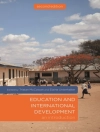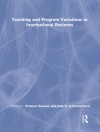Based on thorough ethnographic fieldwork in a refugee camp in Tanzania this book provides a rich account of the benevolent “disciplining mechanisms” of humanitarian agencies, led by the UNHCR, and of the situated, dynamic, indeterminate, and fluid nature of identity (re)construction in the camp. While the refugees are expected to behave as innocent, helpless victims, the question of victimhood among Burundian Hutu is increasingly challenged, following the 1993 massacres in Burundi and the Rwandan genocide. The book explores how different groups within the camp apply different strategies to cope with these issues and how the question of innocence and victimhood is itself imbued with ambiguity, as young men struggle to recuperate their masculinity and their political subjectivity.
表中的内容
Acknowledgements
Chapter 1. The Troubled Nature of Innocence
Chapter 2. Histories of Conflict
Chapter 3. The Biopolitics of Innocence
Chapter 4. Camp Life and Moral Decay
Chapter 5. ‘Big Men’ and ‘Liminal’ Experts’
Chapter 6. Rumour and Politics
Chapter 7. Innocence Lost
Chapter 8. Conclusion
Postscript: What Happened to the Camp?
References
Index
关于作者
Simon Turner is a senior Researcher at the Danish Institute for International Studies. He has worked on the conflict in Burundi, doing ethnographic fieldwork among refugees and the Diaspora in East Africa and Europe. He has published on masculinity, Diaspora and conflict, sovereignty and public authority, and refugee relief work.












